Articles & Resources
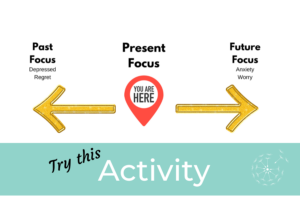
Children’s Activity: Move your focus
If you read our article this week, we were exploring the impact of our perspective, and where our head is. If you missed it, you can read it here. Being able to ask yourself the right questions, and shift your focus is an important skill when it comes to regulating our feelings and behaviours. Free

Where is your head?
I often have conversations in my coaching and therapy work about where our perspective is and the impact that this has on our mental health and well-being. Depending on where we focus, has a significant impact on our thoughts and feelings. If we focus on the PAST, we can find ourselves focussed on regrets, ruminating,
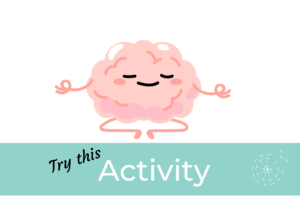
Children’s Activity: Calm your mind
Learning to calm our mind when we feel anxious or overwhelmed, allows us to move from our amygdala (fight/flight/freeze/fawn) into our prefrontal cortex (logic/reasoning/regulation). Often, we can catch ourselves asking children hundreds of questions about ‘what is wrong?’ ‘what is the matter?’ ‘how do you feel?’ and notice their anxiety escalating as we draw more
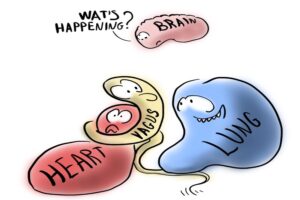
Why your vagus nerve is important
*Note – this article is not medical advice, and should not be used as such. It is for information purposes only. We don’t often talk about our vagus nerve, but this incredible nerve is central to so many issues that arise in coaching and therapy. The Vagus Nerve influences our mood, emotions and overall well-being
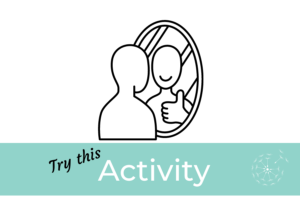
Children’s Activity: Journal for Self-love
Journal Prompts Journalling can help us to calm our minds by structuring our thoughts. Journal prompts help us to explore different aspects of our lives and develop a deeper understanding of them. By taking time to deeply think about different concepts, we can find peace, solutions or identify areas for support. Journal prompts are questions

Why coaching for children?
If you caught our last article, we looked at the variations between coaching, therapy and counselling, so today I want to look at why coaching needs to be in our priority list for children and young people. Coaching can feel like a new concept, but in reality, it has been around for a long time.

Children’s Activity: Colouring Time
Download here Free Activity So, this week, our free activity is a downloadable mandala colouring sheet, so you can unwind together. Why not make it a family affair and all have a go…. Want to learn more? Are you looking for a deeper understanding of child mental health? Our Level 4 Child and Adolescent Mental

Counselling, Coaching or Therapy?
A frequent challenge that can occur, is what modality of support we need when our mental health requires some support. The core options which people are aware of are counselling, coaching and therapy, but which one do we need? and for what? So, we’re taking a mini dip into the different types of support and
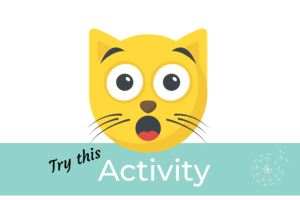
Children’s Activity: Find the feelings
Feelings A step of emotional literacy development is being able to recognise what our emotions are. Many children can find it challenging to be able to recognise, identify and respond to their emotions, particularly the more subtle feelings. A great first step, is to encourage children to reflect on their feelings, so that they can

Why children cannot regulate their tech use
In my work, I am often asked about how to regulate children’s technology use and screen time. This subject always leaves people divided into two camps: Camp 1 – The belief that children should be able to regulate their tech use Camp 2 – Feeling lost as to how to regulate it without meltdowns So,
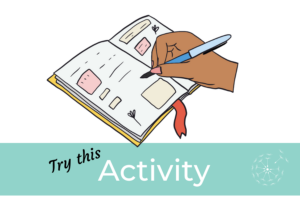
Children’s Activity: Journal Prompts for Self-esteem
Journal Prompts Journalling can help us to calm our minds by structuring our thoughts. Journal prompts help us to explore different aspects of our lives and develop a deeper understanding of them. By taking time to deeply think about different concepts, we can find peace, solutions or identify areas for support. Journal prompts are questions

The influence of our environment
We often talk about environment, considering nature and the role of sleep and organisation in mental health. However, in this article, I want to instead explore the role environment can have on our belief systems, limiting beliefs and feelings. Our environment has many components, but for this article, I want to consider our senses: So,
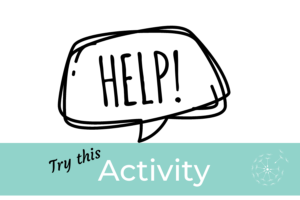
Children’s Activity: When I feel…
How do you feel? We often ask children how they feel, however many children have a small stock of responses that they can give us. Something we can commonly see, is the difficulty pulling apart the differences. Such as, the difference between sad and bored, excited and anxious, happy and content. Many feel that they

What we focus on – grows.
A challenge that we can all experience, is where we place our attention. As the saying goes, ‘what we focus on, grows’. Perhaps, if you close your eyes, you can take yourself back and think of a time when life felt ‘great’. Think now, what were you thinking about at this time? What did you
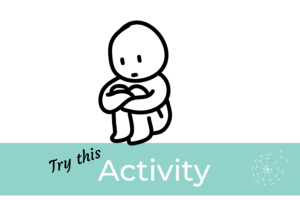
Children’s Activity: Sadness Maps
Sadness Sadness is an overwhelming emotion associated with the sense of loss, affecting us both physically (heavy eye lids, dropped mouth, lethargy) , psychologically (mood, emotions, distraction), physiologically (heart rate, skin temperature)and behaviourally (withdrawal, isolation). It can be triggered by the loss of connections, such as friendships or routines. The loss of loved ones, including

Why we need to stop saying ‘we are all on the spectrum’
I’m sure we have all heard someone make the comment ‘well, we’re all on the spectrum aren’t we?’ in a conversation around neurodivergent traits, but the understanding of what this means can be misleading. Neurodivergence is a non-medical term which acts as an umbrella for a range of different functionalities and conditions. It describes individuals
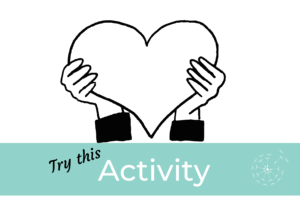
Children’s Activity: Growing Self-compassion
Self-compassion relates to the action of treating ourselves with warmth, understanding and kindness, especially when we are struggling, fail, feel that we are not good enough or are in emotional or physical discomfort. It is the act of choosing to treat ourselves as though we are our best friend, instead of opting to be unkind,

We get confidence backwards….
Have you ever noticed yourself saying: We so often use the concept of ‘confidence’ as a means to begin taking action, and can so frequently find that months later we are still waiting for it to materialise. So, what is confidence? Confidence is referred to as ‘the feeling or belief that one can have faith
DISCLAIMER
The resources on this site are for individual use. They are not permitted to be mass reproduced by other organisations without a licensing fee. The content and resources on this site may not be mass reproduced in whole, or in part and are not for re-distribution by third parties without special permission from the provider. No use of these resources may be made for resale or any other commercial purposes without prior consent and written permission from Dandelion Training and Development. In some cases a licensing fee may apply.
